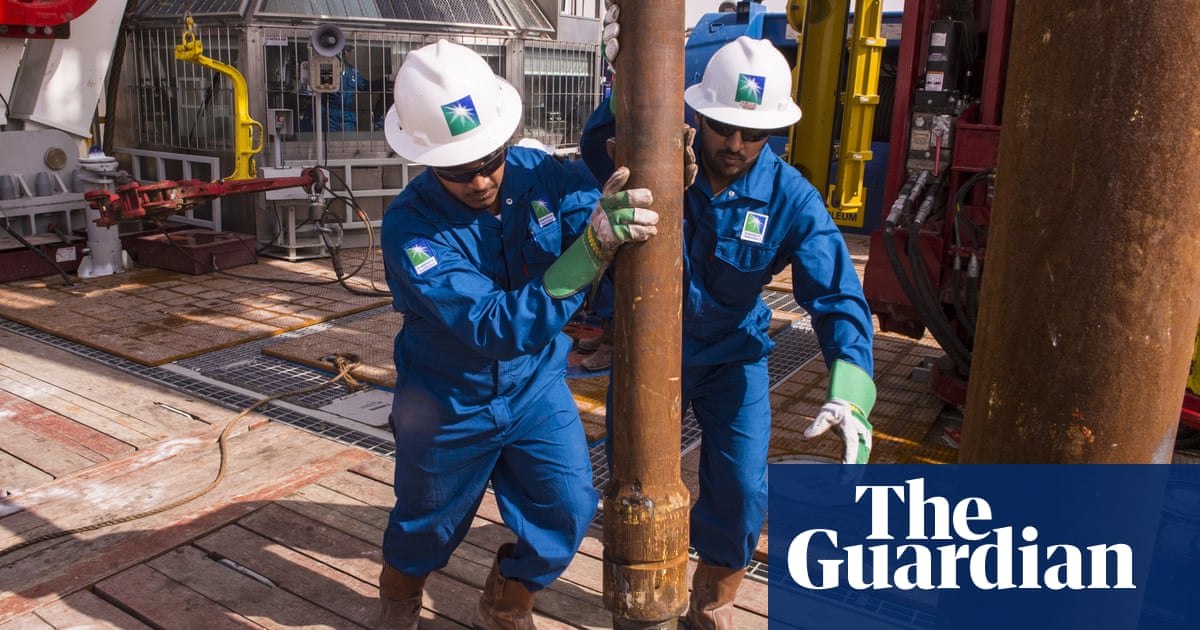 [ad_1]
[ad_1]
Saudi Arabia’s state-owned oil company is on track to grow its dividends by 30% this year to a new high of $124bn (£98bn) despite reporting weaker profits in the last quarter.
The world’s biggest oil company will pay its shareholders, including the Saudi government, a quarterly dividend of $31bn, which puts the company on course to achieve the record annual sum.
The payouts are a crucial source of income for the Saudi government – which controls more than 81% of the company while Saudi Arabia’s sovereign wealth fund holds 16% – as it undertakes a multitrillion-dollar overhaul of its economy.
Aramco’s record-breaking dividends, the highest since a portion of the company was listed on the Saudi stock exchange in late 2019, were set out alongside financial results that showed its net income for the three months to the end of June fell to $29bn, down from $30bn in the same period a year earlier.
Aramco’s profits were dented over the second quarter after the company sold less crude and reported weaker margins from its refinery business. The company limited its oil production to an average of 9m barrels of a oil a day as it led efforts by the Organization of Petroleum Exporting Countries to shore up prices in the global market.
The curbs on Aramco’s oil production have caused the company’s share price to tumble by 19% this year, underperforming global oil supermajors such as Exxon Mobil and Shell that have kept their focus on returning cash to shareholders with growing dividends and share buy-backs.
Oil prices have tumbled this year amid concern over global economic growth, which is expected to pile pressure on the Saudi government’s finances. The kingdom requires oil market prices of more than $96 a barrel to meet its spending plans, according to a regional outlook from the International Monetary Fund, well above the prevailing benchmark price of $76 a barrel.
The government sold a fresh stake in Aramco earlier this year, raising $12.35bn for its coffers. It has also been one of the most active debt issuers, raising $17bn from eurobond sales.
after newsletter promotion
Global oil markets have slumped by 6% in the last week to its lowest levels since January because of shaky Chinese demand and fears that the US may be facing a recession. However, commodity analysts at Goldman Sachs believe prices will remain above $75 a barrel owing to “resilient” oil demand in the west and India.

0 Comments